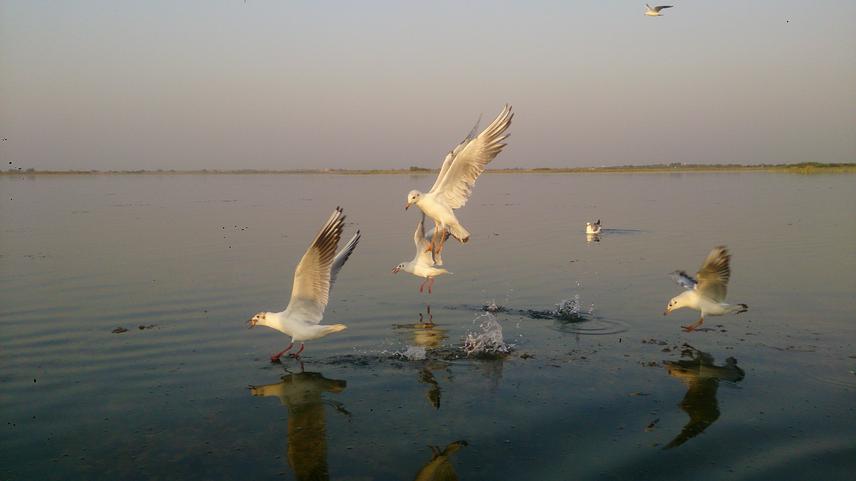Arzoo Malik
Evaluate the pesticide contamination level in waters, sediments and feathers from birds in Nal Sarovar and conserve this Ramsar site through participatory conservation approach

Nal Sarovar is the only Ramsar site in Gujarat state, India which is an important wetland for migratory birds. It is a depression formed by joining of two gulfs on both sides, receiving agricultural runoffs from its surrounding areas. Therefore, it is important to address the issue of pesticide usage in agricultural fields around the wetland, which are received as runoffs by these areas contaminating the water and increasing the possibility of direct and indirect impact on birds.
The major goal of this project is to generate awareness among the farmers and general community through awareness programmes regarding the harmful impacts of pesticide usage in agricultural fields on wetlands, and more particularly on birds. This will be achieved by evaluating the organochlorine and organophosphorus pesticide contamination in abiotic (waters and sediments) and biotic (feathers) samples from Nal Sarovar and correlating it with the usage of pesticides in surrounding agricultural areas. This deserves special attention when we consider the well-known effects that these pesticides are able to cause on resident and migratory birds. Farmers being the producers are more connected to the nature and can be more reliable to adopt an innovation if they expect that the practice will help them achieve their personal goals including environmental goals, ultimately it may help minimizing contamination in wetlands.
This project will identify and map the pesticide prone zones which will be important for further research, monitoring and management activities. By identifying probable sources of pollution, concrete solutions can be suggested to the locals and concerned authorities. This study will help in enlightening the major issue of pesticide contamination in wetland and will encourage locals to use eco-friendly and sustainable agricultural practices to promote conservation at the grass root level. Moreover, this will be the first time in Gujarat, where farmers will be involved in conservation of bird habitat, enabling them to change their attitude towards the environment. It is remarkable that studies evaluating pesticide exposure in avian species in Asia and especially in India are scarce. Therefore, this project represents an important contribution to ecotoxicology, providing preliminary new data on pesticide exposure in different wild birds that will help to plan future studies to track the trends of pesticide exposure and related effects in time and space.